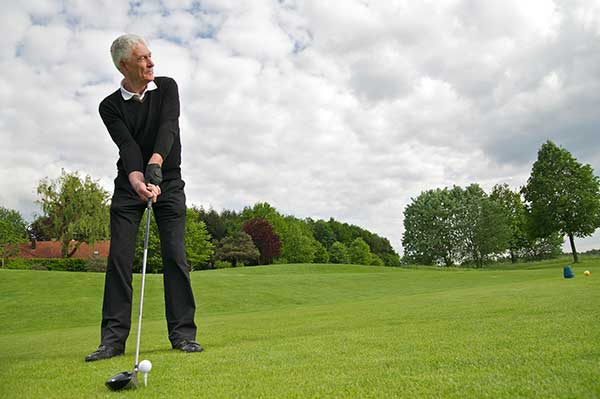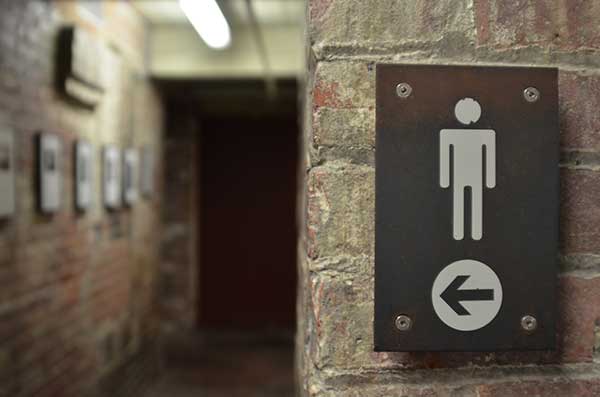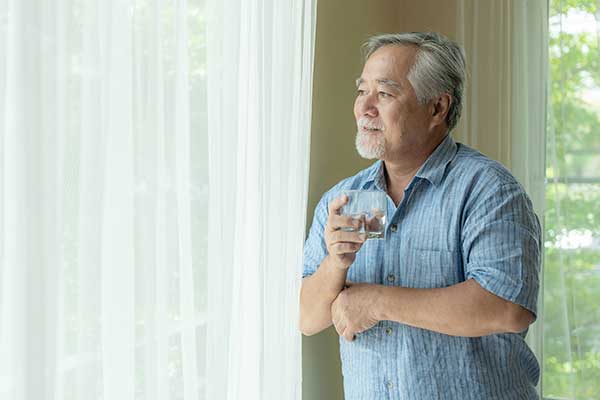
(Family Features) If you have avoided events and activities you enjoy because of urgent and frequent trips to the bathroom, you may not be alone.
Men over the age of 45, with urinary symptoms common with an enlarged prostate, also known as benign prostatic hyperplasia (BPH), may anticipate and plan for urgent and frequent bathroom needs. Whether they rearrange their morning schedules in anticipation of interrupted sleep, limit the amount they drink or purposefully seek out and stay close to the bathroom, this “extreme bathroom planning” can disrupt normal daily activities.
These findings are the result of a survey sponsored by Teleflex Incorporated of approximately 1,000 men in the United States, 45 years and older, who have experienced at least one urinary symptom associated with BPH.1
These activities are signs that you may be an extreme bathroom planner. If you answer “yes” to any of these questions, it might be time to schedule a check-up with your doctor.

Do you avoid activities you enjoy because of urinary symptoms? Approximately 45% of men surveyed have avoided events or activities they enjoy due to urinary symptoms.1

Do you map out travel routes based on the availability of restroom facilities? More than 40% of men surveyed have chosen certain routes on road trips because they have more or better availability of restroom facilities.1

Do you locate the closest bathroom when you go somewhere new? About 1 in 5 men surveyed said locating the closest bathroom is the first thing they do when they go somewhere new.1

Do you pick event seating based on bathroom access?About 43% of men surveyed have selected their seats when purchasing tickets to an event based on proximity to the restroom.1

Do you limit the amount you drink during the day? Nearly 62% of men surveyed have limited the amount they drink throughout the day even when they have access to a restroom to avoid a frequent or urgent need to urinate.1
Because not all urinary symptoms are caused by the same thing, men over the age of 45 who are experiencing urinary symptoms should consider speaking with their doctor about their prostate health. More than 12 million men in the U.S. seek treatment for BPH.2 BPH is unrelated to, but more common than, prostate cancer, according to the American Cancer Society,3,4 and if left untreated can lead to permanent bladder damage.5
Medications are a common treatment option for men diagnosed with BPH. Among those surveyed, more than 65% have taken medication to treat their condition. However, nearly 1 in 4 men said their medication was “not very effective” or “not effective at all” at helping reduce their need to plan their next bathroom trip.1
The good news is, there are other options. As a minimally invasive treatment for BPH, the UroLift System treatment, is an option that can help men get off BPH medications and avoid major surgery and related complications.6,7 It uses a proven approach that lifts and holds the enlarged prostate tissue out of the way so it no longer blocks the urethra.
It is the only leading BPH treatment that does not require heating, cutting, removal or destruction of the prostate tissue6-10 and is the only leading BPH procedure shown to not cause sexual dysfunction (no instances of new, sustained erectile or ejaculatory dysfunction) as shown in the LIFT pivotal study.7, 12, 13 Most common side effects are temporary and include pain or burning with urination, blood in the urine, pelvic pain, urgent need to urinate and/or the inability to control the urge.6 Rare side effects, including bleeding and infection, may lead to a serious outcome and may require intervention. Speak with your doctor to determine if you may be a candidate.
To talk to a doctor about safe and effective treatments for BPH, visit UroLift.com to find a urologist in your area.
1. Data on file: Men’s Health Survey 2021, n=1,000 conducted by Teleflex l NeoTract 2021
2. NeoTract US Market Model estimates for 2020, data on file
3. American Cancer Society Key Statistics for Prostate Cancer http://www.cancer.org/cancer/prostatecancer/detailedguide/prostate-cancer-key-statistics
4. Berry, J Urol 1984
5.Tubaro, Drugs Aging 2003
6. Roehrborn, J Urol 2013
7. AUA Guidelines 2003, 2020
8. Mirakhur, Can Assoc Rad J 2017
9. McVary, J Urol 2016
10. Kadner, World J Urol 2020
11. Rochester, AUA 2019 presentation
12. McVary, J Sex Med 2016
13. Roehrborn, Can J Urol 2017
MAC02229-01 Rev B
Photos courtesy of Adobe Stock
SOURCE:
UroLift


